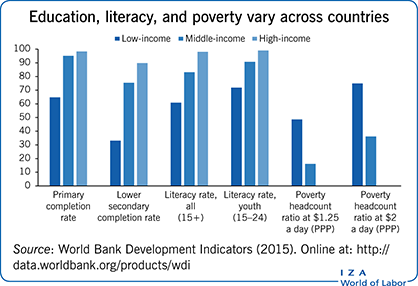Elevator pitch
In addition to the traditional education system targeting children and youth, one potentially important vehicle to improve literacy and numeracy skills is adult literacy programs (ALPs). In many developing countries, however, these programs do not seem to achieve these hoped for, ex ante, objectives and have therefore received less attention, if not been largely abandoned, in recent years. But, evidence shows that ALPs do affect other important socio-economic outcomes such as health, household income, and labor market participation by enhancing participants’ health knowledge and income-generating activities.

Key findings
Pros
Literacy impacts of ALPs can be high, if novel approaches and modern technologies are utilized.
ALPs have relatively low demand-side/direct costs and low supply-side/indirect costs.
There is some, though scarce, evidence of positive effects on labor market participation, consumption/income, and health.
Literate parents (especially mothers) are more likely to send their children to school and are more engaged in their children’s education.
Evidence suggests that ALPs increase empowerment and civic participation among program participants.
Cons
ALPs mostly show only limited impacts on literacy and numeracy (their ex ante stated objectives).
ALPs are historically riddled with low initial enrollments, high dropout rates, and relapse into illiteracy.
There is minimal evidence (especially, more rigorous evidence) of program impacts.
Robust evidence is particularly scarce with respect to other important outcomes than literacy and numeracy, such as employment, wages, and health.
ALPs have had hugely different impacts across countries.